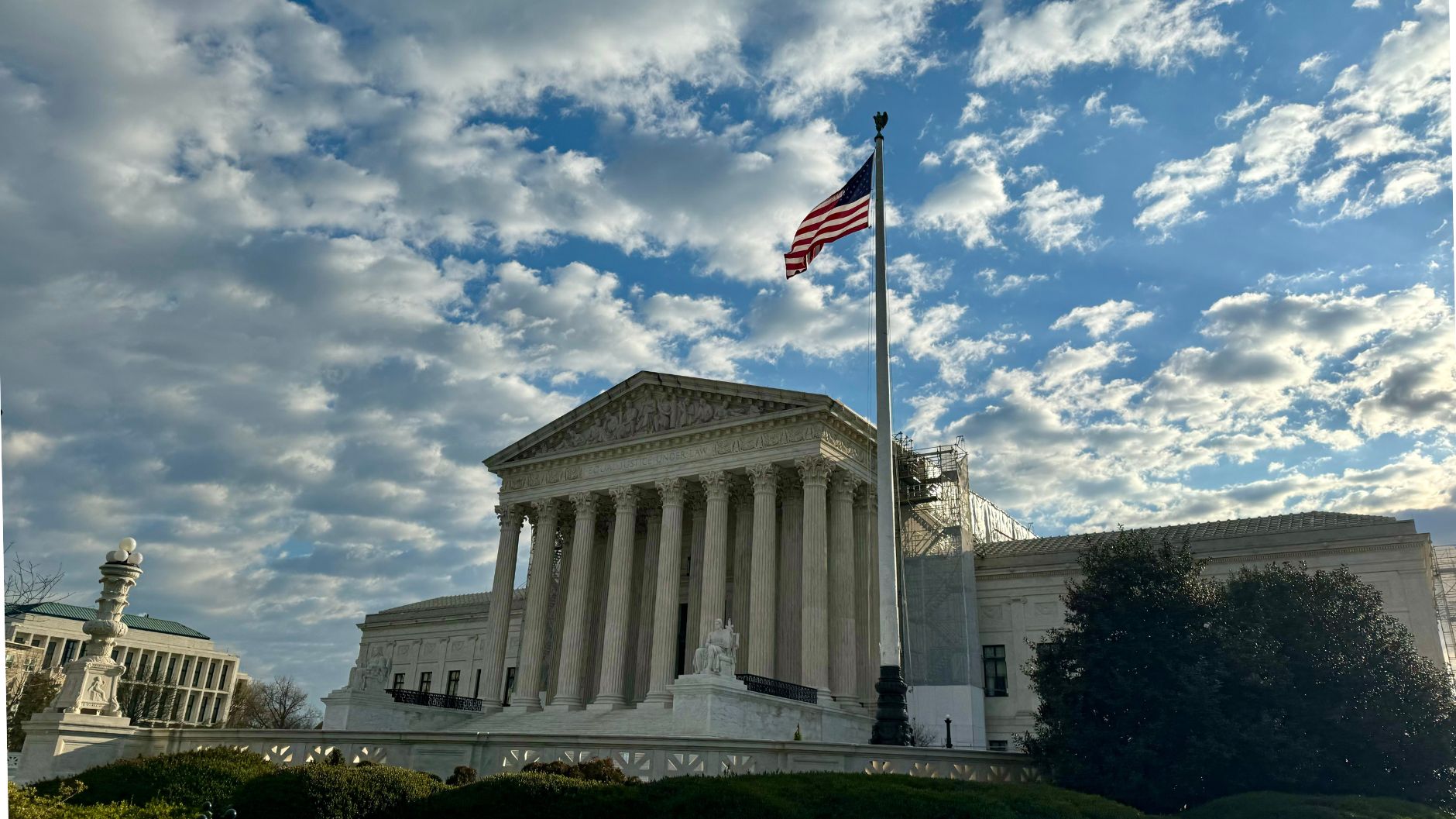WASHINGTON (CN) — The Supreme Court appeared interested Monday in weakening a federal anti-bribery law prohibiting officials from accepting gifts from those their actions benefit.
A mayor from Portage, Indiana, asked the court to overturn his corruption conviction for accepting a reward after an official act. James Snyder accepted $13,000 from Great Lakes Peterbilt after the city awarded the trucking company two contracts for their vehicles.
Lisa Blatt, an attorney with Williams & Connolly representing Snyder, provided the justices with a flurry of colorful examples for why the justices shouldn’t allow the government to criminalize gift-giving.
“You have to draw a line between the two-buck chuck at Trader Joe's and the wine that goes up to $5,000 and I don’t know where the government’s line is,” Blatt said of the gifts individuals might provide to an official who has helped them. “There’s no drop-down menu on Amazon for mens rea.”
Quid pro quo bribery is illegal under federal law, but the government charged Snyder with illegal gratuity, which describes a gift for a future or past act an official has made. Under the statute, an official cannot corruptly accept anything over $5,000 that is intended to influence their actions.
Blatt said the government hadn’t prosecuted an illegal gratuity but instead a reward, which is commonly given to show an individual’s appreciation of an action without any ties to corruption. Blatt seemed to draw on her own experience to convince the justices of this point.
“The doctor who removes your wart, fine, but the doctor who takes your gallbladder out or does your face — like my plastic surgeon — no that’s worth over $5,000,” Blatt said while gesturing to her face.
Although that comment elicited laughter from the justices, Blatt said the example was serious since the law would apply to millions of individuals in and outside of the government.
The justices seemed convinced by Blatt’s parade of horribles. Chief Justice John Roberts, a George W. Bush appointee, asked about a reward for finding a lost dog. Justice Brett Kavanaugh, a Donald Trump appointee, asked about a Starbucks coffee or tickets to a sports game. Justice Elena Kagan, a Barack Obama appointee, pointed to billionaires who might make an eight-figure donation to a hospital that helped nurse them back to health.
Justice Clarence Thomas was not present for the argument session and will instead use the briefs and argument transcript to rule on the case. The court did not provide an explanation for George H.W. Bush appointee's absence.
The court’s liberal justices were the only members of the court who seemed even slightly interested in upholding the conviction. Justice Sonia Sotomayor said Blatt’s argument made no sense, suggesting that it said there was nothing wrong with demanding a payment after the fact for an official act.
“It’s not a crime for state officials to run around the country with respect to [state] contracts and say, I voted for X, now pay me?” Sotomayor. an Obama appointee, asked.
Justice Ketanji Brown Jackson, a Joe Biden appointee, said the law was enacted to prevent the exact situation before the court.
Snyder was experiencing financial troubles when he was elected mayor of Portage in 2012. When the city needed to purchase new garbage trucks, he assigned his close friend, Randy Reeder, to run the bidding process even though Reeder had no prior experience doing so.
The government said Reeder tailored the bid specifications for Great Lakes Peterbilt, making it so only that company could meet the requirements.
Reeder carried out the same process in another contract where the city purchased a used 2012 truck that Great Lakes Peterbilt was having trouble selling. Combined the two contracts totaled $1.125 million.
After the second contract was decided, the trucking company issued a $13,000 check to a firm owned by Snyder. He claimed the money was for consulting fees but was not able to provide any documentation of a consulting agreement.
A federal grand jury indicted Snyder on two counts of corruptly taking money to influence city business.
Snyder moved to dismiss the case, arguing federal law only prohibits quid pro quo bribery, not gratuities. That motion was denied, and a jury convicted Snyder on both charges.
The government defended its conviction, arguing federal law weighed on the side of protecting citizens from corruption, not rewards for officials. Colleen Sinzdak, assistant to the solicitor general at the Justice Department, said the law did not criminalize any and all rewards, and instead focused on acts that were taken with the intent of being rewarded.
“A police chief who sends his officers to foil a burglary at a store and then demands the store owner pay him $10,000 for his officers’ work, he acts with the intent to be rewarded,” Sinzdak said.
Almost all of the justices were sharply critical of Sinzdak’s arguments, worrying that there isn’t a clear distinction between corruption and everyday rewards.
Sotomayor attempted to extend an olive branch to Sinzdak, offering a compromise that would still criminalize illegal gratuities, but it wasn’t clear the other justices would join her. Jackson said her colleagues had extended their review beyond the question presented, suggesting an attempt to similarly limit a ruling against the government. It did not appear any of the justices were interested in that solution either.
Blatt was so confident in her success that she said at the very least the justices were likely to rule 9-0 to remand the case. She accused the government of misstating the facts of the case below and making up legislative language to pad its argument.
“This is just kind of made up,” Blatt said. “It sounds like at moot court they worked this out because it would sound good.”
The justices will issue a ruling by the end of June.
Subscribe to Closing Arguments
Sign up for new weekly newsletter Closing Arguments to get the latest about ongoing trials, major litigation and hot cases and rulings in courthouses around the U.S. and the world.









